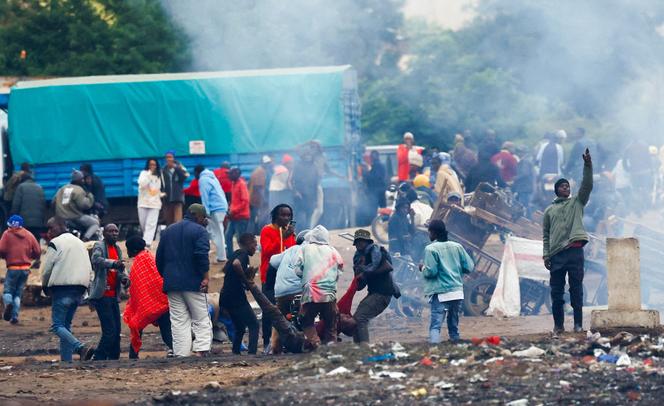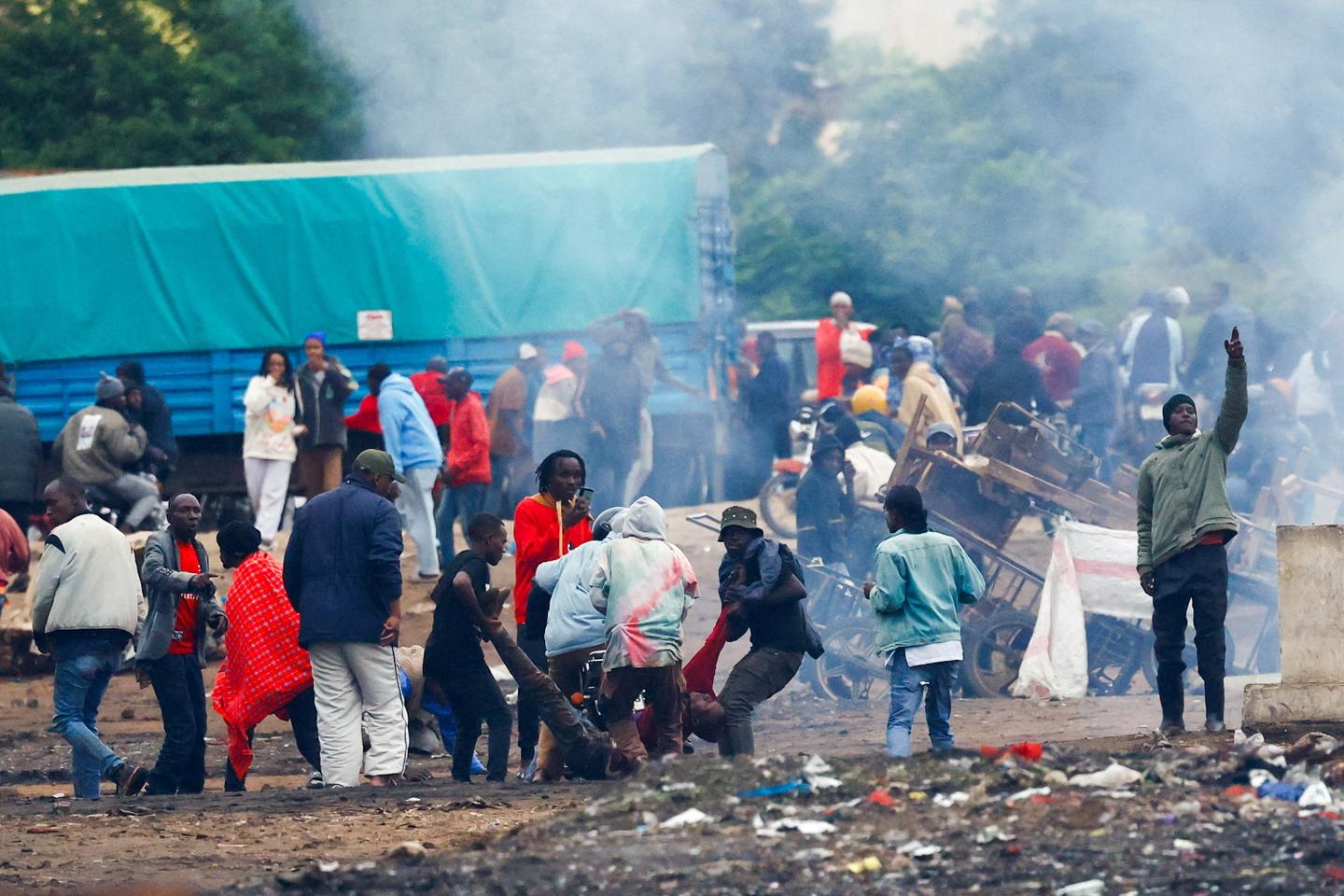 During post-election protests against President Samia Suluhu Hassan’s victory, at the Namanga border post in Tanzania, on October 30, 2025. THOMAS MUKOYA/REUTERS
During post-election protests against President Samia Suluhu Hassan’s victory, at the Namanga border post in Tanzania, on October 30, 2025. THOMAS MUKOYA/REUTERS
The Tanzanian elections, held on Wednesday, October 29, were expected to be uneventful. The vote was carefully controlled by President Samia Suluhu Hassan, head of the all-powerful ruling party, Chama Cha Mapinduzi (CCM). The opposition was either absent or nearly so.
Tundu Lissu, leader of the main opposition party Chadema, was imprisoned and tried for treason. Luhaga Mpina, candidate for the only other significant party, ACT Wazalendo, was disqualified for procedural reasons. Repression, which had been increasing for several years, intensified further, with NGOs and civil society condemning intimidation, abductions and disappearances. On the eve of the vote, the army deployed tanks around Dar es Salaam, the economic capital.
But none of these precautions were enough to contain the anger of part of the Tanzanian population. On Wednesday, while the election was still underway, violent protests broke out in the largest city on the Indian Ocean coast. Hundreds of people, mostly young men, shouted their opposition to the CCM, the party that has ruled Tanzania continuously since independence in 1961.
You have 78.92% of this article left to read. The rest is for subscribers only.
